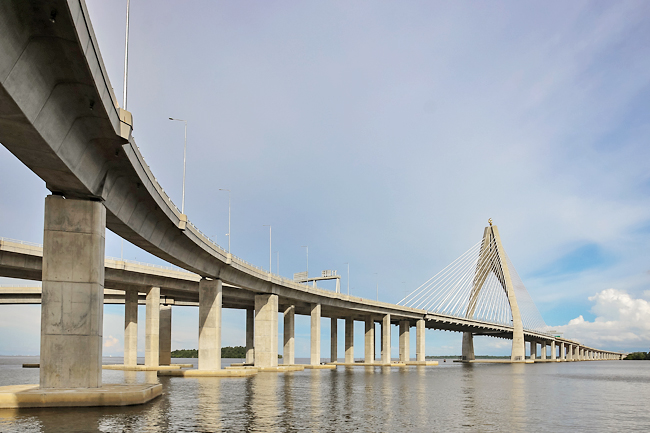Azlan Othman
Brunei Darussalam’s economy is projected to grow 5.8 per cent this year, according to the International Monetary Fund’s (IMF) latest Regional Economic Outlook report.
IMF said economic growth in Asia and the Pacific is poised to slow more than previously estimated this year amid headwinds from the conflict in Ukraine, a resurgent pandemic, and tightening global financial conditions.
Regional gross domestic product will expand by 4.9 per cent, 0.5 per centage points less than we forecast in January and slower than last year’s 6.5 per cent growth rate, according to their latest projections.
They also estimate that inflation will rise faster in many countries, though from relatively low levels.
Slower growth and rising prices, coupled with the challenges of war, infection and tightening financial conditions, will exacerbate the difficult policy trade-off between supporting recovery and containing inflation and debt.

The invasion of Ukraine will pose the biggest challenge for economic growth, with the region’s advanced economies hurt most by reduced demand from Europe and emerging markets feeling the effects of higher global commodity prices, according to the latest projections.
IMF latest World Economic Outlook also lowered the 2022 global growth estimate by 0.8 per centage point to 3.6 per cent. It reflects a 1.1 percentage point cut for the euro area, now seen expanding 2.8 per cent.
Because Asia’s advanced economies have strong ties with Europe, the continent’s weaker growth will weigh on external demand and ultimately growth for major regional trade partners like Japan and South Korea.
Most of Asia’s emerging and developing economies are net importers of oil, gas, and metals, making them particularly vulnerable to rising global commodity prices.
That means that a deterioration in their terms of trade – a measure of prices for a country’s exports relative to its imports – will likely reduce growth, weaken currencies, and worsen current-account balances.
High food and fuel costs also add to inflation pressures, especially in lower-income countries where they make up a large share of consumer spending.
Coronavirus infections in most of Asia have retreated from their peaks during the rapid spread of the Omicron variant, with mobility indicators approaching pre-pandemic levels.
China is the most notable exception to this, as lockdowns in Shanghai and elsewhere idle a wide range of activity and threaten to cause further disruptions to regional and global supply chains.
These lockdowns are one reason that they project growth in China to slow to 4.4 per cent this year, which will affect Asia’s emerging economies through reduced trade and demand.
Addressing pressures on growth and managing the difficult short-term trade-offs requires strong and coordinated policy responses tailored to country-specific circumstances. The IMF said authorities in the region should protect the most vulnerable from rising fuel and food costs.
Social unrest has already flared where these pressures exacerbate vulnerabilities, such as Sri Lanka.
Promising regional examples of targetted and temporary protections include a Philippine cash-transfer program and New Zealand’s reduction in public transport fares.





